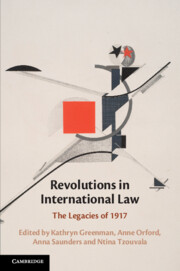Thomas Brussig’s Helden wie wir (Heroes Like Us, 1995) caused a notable stir in the German press after its publication, and has been aptly described as ‘the media event of winter 1995’. Within a year, the novel was already in its eighth printing, and an adaptation for stage was on the programmes of numerous theatres; in 1999, a film version was premiered to coincide with the tenth anniversary of the fall of the Berlin Wall. Brussig – little known before 1995, and whose first novel, Wasserfarben (Watercolours, 1991), was written under a pseudonym – became an overnight hero, acclaimed for writing the ‘novel of unification’. Although he has since written a more weighty tome on the Wende, entitled Wie es leuchtet (How It Shines, 2004), the latter has failed to gain the same public attention as Helden wie wir. This is doubtless partly due to Helden wie wir’s irreverent humour, which focuses on the sexual development and perversions of the novel’s pathetic antihero, Klaus Uhltzscht. Yet the clever entwining of Klaus’s sexual fantasies with the perversions of state socialism also provided a fresh and provocative approach to the reworking of the communist past in the GDR and the early years of German unification, a period which was still fresh in the minds of many East Germans in 1995. Indeed, Helden wie wir seized the sentiment of the time, parodying the numerous memoirs, protocols and autobiographies that had been published in the early to mid-1990s. It also drew on the work of the much-read psychoanalyst Hans-Joachim Maaz, whose books explained the downfall of the GDR by analysing the inner psyche of the East German population, focusing particularly on authoritarian lifestyles and the mechanics of repression both within the home and in the public sphere. Brussig’s bestseller was, quite clearly, a well-timed novel which struck a chord with the concerns of the time.
Despite its resonance with the mid-1990s, Helden wie wir also draws on longer literary traditions, most obviously on the picaresque genre, as Klaus recounts his dubious adventures from an autobiographical narrative perspective, and the text is a sharp satire of the society in which he lives. In this vein, Brussig’s novel reminds us of Günter Grass’s Die Blechtrommel (The Tin Drum, 1959), for the protagonists of both live on the margins of their respective societies, yet they are also the immediate – and disturbing – products of these societies; while Oskar Matzerath chooses physical deformity by refusing to grow beyond his third birthday, Klaus grows into a psychologically and emotionally deformed adult. Furthermore, the opening paragraph of Helden wie wir, in which Klaus recounts his birth, reminds us of Oskar’s memory of his own birth, and the motif of the ‘fall down the stairs’ constitutes a life-changing moment for both narrators. Brussig’s antihero also reminds us of social misfits from the East German literary tradition, most predominantly Edgar Wibeau in Ulrich Plenzdorf’s Die neuen Leiden des jungen W. (The New Sufferings of Young W., 1973), who, like Klaus, records episodes of his life onto tape. As in Plenzdorf’s text, the influence of J.D. Salinger’s controversial novel The Catcher in the Rye (1951) can also be seen in Helden wie wir, in so far as both novels depict a frustrated adolescence and the desire to flaunt the norms of society. Indeed, there is little doubt that a large part of Brussig’s inspiration came from across the Atlantic, especially in his sexually explicit scenes and phallocentric tales. Such authors include John Irving, whose The World according to Garp (1978) features in Helden wie wir, Charles Bukowski, Henry Miller, and above all Philip Roth, in particular with his novel Portnoy’s Complaint (1969). Brussig thus draws on an irreverent narrative tradition from the United States to depict a very German affair – and in doing so brings a fresh approach to the writing of recent German history.




